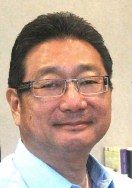More powerful than Hurricane Katrina that hit the United States in 2005, Typhoon Yolanda is one of the costliest and deadliest storms in the Philippines to hit the country in recent years, displacing over three million people, damaging over a million homes, and killing more than five thousand. But we are awed by the resilience of the Filipino people and their admirable determination to overcome the difficulties together as a nation. I believe that, with the Filipino’s bayanihan or cooperative spirit and the support of the global community, the Philippines will bounce back stronger and more resilient than ever.
Even while the country is still grappling with relief work, the government is already formulating a recovery and reconstruction plan. This is a major step in the right direction. The World Bank Group (WBG) has been supporting this process.
The World Bank Group has quickly deployed its disaster risk management specialists from a variety of fields to help the government assess damages and identify priority areas for immediate short-term recovery and reconstruction support. Our technical team has obtained remote sensing images to assess damage on the ground without interfering with the ongoing humanitarian aid and relief efforts.
At the request of the government, our team is also providing guidance on disaster-resilience design options for housing, health facilities, schools, and public facilities that can withstand super typhoons as well as resist high magnitude earthquake and severe flooding. This is very important: places like schools, hospitals and other public buildings should be safe havens during disasters and built to that standard. When I was growing up in Japan, the government always told us to head for the nearest school when warnings for strong storms, floods and other disasters are sounded because those facilities were designed and built as a safe haven for the community during calamities.
Private sector recovery as well as private sector leadership in the recovery of the region is crucial. Hence, the International Finance Corporation (IFC), a member of the World Bank Group focused on the private sector, is developing risk share facilities and advisory services to help small and medium enterprises get back on their feet. It is also looking into extending financing to power transmission and generation companies to repair typhoon damage, as well as for the rebuilding of hotel and retail facilities in affected areas. Consultations on how best the private sector can lead the recovery process are underway.
Recovery and reconstruction will require significant amount of resources. It’s heartening to note that development partners have quickly mobilized sources of funding. On the part of the World Bank Group, we have committed US$ 500 million in budget support. In addition, we have funds ready to help typhoon-affected communities rebuild community-level livelihood-related infrastructure through the US$480 million National Community-Driven Development Project (NCDDP). This could quickly help restore basic social services including water, schools, health facilities, local roads, and bridges. The project will empower community members themselves to lead the reconstruction effort, by offering a transparent way for people to determine their own needs.
One of the most important lessons that the World Bank Group has learned in Aceh which was hit by the Indian Ocean tsunami in 2004 and Java by an earthquake in 2006 is that, given proper support, communities can and should take the lead in their own recovery. Community housing programs for permanent shelters in these areas delivered housing faster, at cheaper cost and of higher quality. Community members also led in the provision of community infrastructure including water supply, access roads and bridges, markets, and schools. Community members work among themselves to ensure quality and quick completion. This was coupled with the oversight and assistance of local facilitators and engineers.
In India, owner-driven reconstruction has proven more effective than the use of contractors. We have learned that where people were given funds to repair their houses, most families actually economized to build new units instead. Homeowners hire their neighbors for repairs and construction, thus creating jobs in the disaster-affected areas. Where people were put in charge of the process, the houses built were more adapted to each family’s requirements and preferences.


